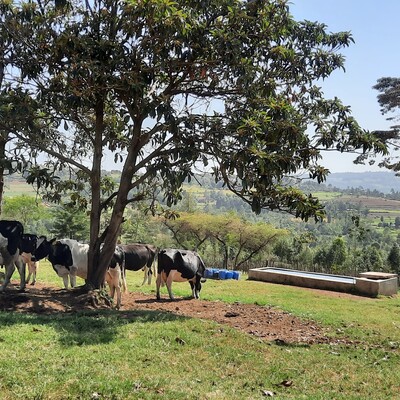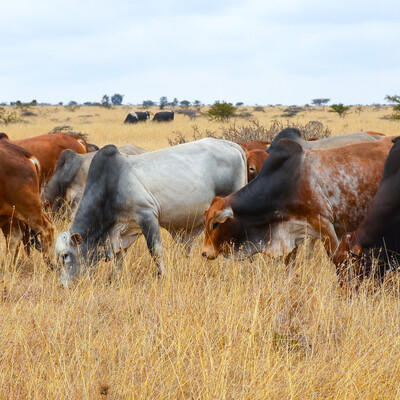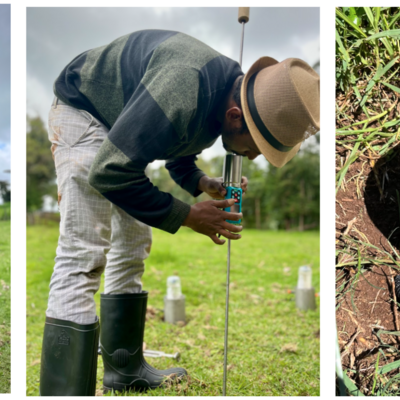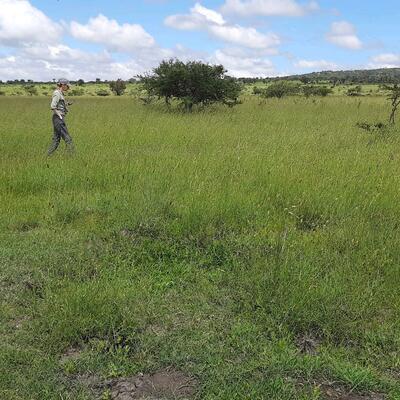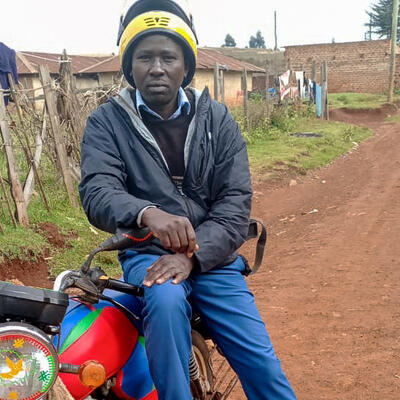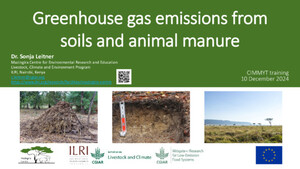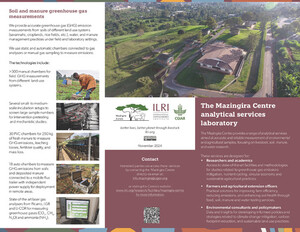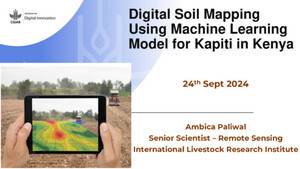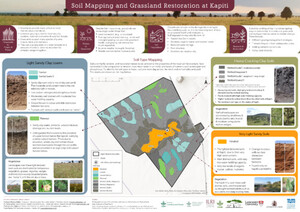

The HABITAT project
Smallholder pasture management plays an important role for biodiversity in Kenyan highlands. Smallholder farms account for 80 per cent of all farms in Kenya. However, trying to balance needs of both livestock, pastures, biodiversity and crops may lead to trade-offs between maximizing yields and providing natural habitats for flora and fauna.
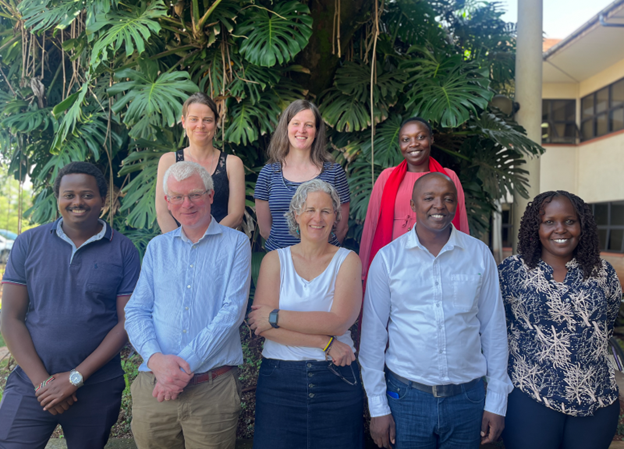
The current challenge is a lack of data on how smallholder pasture management affects biodiversity, and the potential trade-offs and synergies with climate resilience, greenhouse gas (GHG) emissions, and livestock productivity. This limits researchers and policymakers’ ability to provide management recommendations that are feasible for smallholders and help to protect the environment, or that help Kenya meet its national climate change, productivity, and biodiversity goals (Kenya’s National Climate Change Action Plan (NCCAP) 2018-2022, Green Economy Strategy and Implementation Plan 2016–2030,Convention on Biological Diversity, Kenya's NBSAP, and Aichi Biodiversity Target 11 Country Dossier: Kenya).
What the HABITAT project aims to do
But the situation is changing, as recently the Harnessing Pasture Biodiversity and Productivity (HABITAT) project received funding from the Global Centre for Biodiversity and Climate (GCBC) to study the effects of pasture management on GHG emissions, plant biodiversity and dairy production in smallholder farms in Bomet, Kenya.
Crucially, the team will seek out and learn from ‘pioneer’ farmers who are already using beneficial pasture management practices. These are practices that enhance biodiversity, improve productivity, build greater resilience to drought, reduce GHG emission intensities, and help to combat poverty and bolster climate resilience.

Recently the team convened at Mazingira Centre, ILRI.
‘This was the first time the project team has met in person so it was great to see everyone working so well to plan our farmer selection. We are also all excited to start measuring the importance of pasture biodiversity for the farmers,’ said James Gibbons, senior lecturer at Bangor University, UK, and member of the HABITAT team.
The next steps will be to create a better understanding of the plant biodiversity in Bomet pastures; identify pioneer farmers; and to collect data on how their farms are being managed for both biodiversity and reduction of GHG emissions.
Apart from studying their practices, pioneer farmers will also share climate-smart farming practices with others. This will be done through farmer to farmer field days, an approach tested by the Pioneer-Positive Deviance team at ILRI over the last few years.
'We have worked with the pioneer approach since 2020. Putting pioneer households at the center of decision-making and showing genuine faith in their knowledge has enriched our research process in ways we never imagined before. Pioneers have developed confidence in facilitating diverse topics, managing logistics for field days, and networking with a variety of partners,' said Leah Gichuki, research officer at ILRI.
Kelvin Kinuthia, research associate at ILRI, has already created a campaign to collect preliminary data to help select farmers for biodiversity assessment. The campaign also involved Kennedy Matheka, taxonomist at Kenya National Museum, to train farmers on biodiversity aspects.
Following these assessments the team will collect detailed information about production, GHG emissions and soil and pasture health.
Keep checking our blog for quarterly updates on the project. There will also be an inception workshop in November for the team to create detailed data collection plans.
Further background information can be found on the project webpage: https://www.bangor.ac.uk/habitat and How will a growing demand for meat and milk affect the environmental impact of Kenyan highland farms | Bangor University.
The HABITAT team brings together experts from across disciplines: James Gibbons, senior lecturer at Bangor University, specializing in spatial modeling; Simon Mwaura, agricultural economist, Claudia Arndt, team leader of the Mazingira Centre, ILRI; Jesse Gakige, animal nutritionist, Sonja Leitner, ILRI senior scientist, Birgit Habermann, ILRI scientist, Leah Gichuki, ILRI research officer, Emmaculate Kiptoo, ILRI research associate.
The Global Centre on Biodiversity for Climate (GCBC) is an Official Development Assistance (ODA) programme that funds research into natural solutions to biodiversity loss, climate change, and poverty.
The GCBC is funded by the UK’s Department for Environment, Food and Rural Affairs (Defra) and managed in partnership with DAI Global (Fund Management Lead) and the Royal Botanic Gardens Kew (Strategic Science Lead).
Disclaimer: This material has been funded by UK International Development Funds; however, the views expressed do not necessarily reflect the UK government’s official policies.’
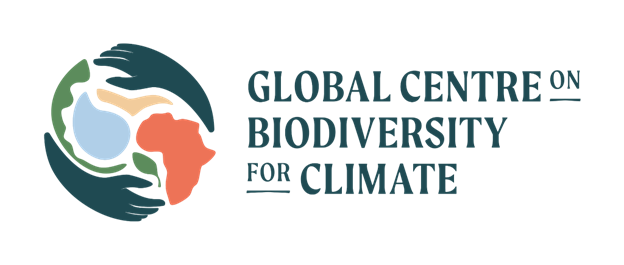

You may also like
Related Publications
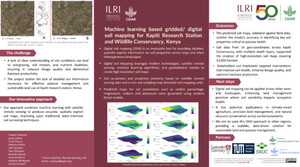
Machine learning based gridded/ digital soil mapping for Kapiti Research Station and Wildlife Conservancy, Kenya
- Cherotich, Fredah
- Leitner, Sonja
- Pearce, F.
- Rufino, Mariana C.
- Quinton, J.
- Dhulipala, Ram
- Salavati, M.
- Gluecks, Ilona V.
- Whitbread, Anthony M.
- Paliwal, Ambica






